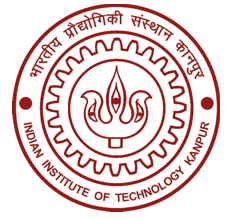

Carbonation characteristics of alkaline industrial wastes for carbon dioxide capture and mineralization (Requirement: 1 Ph.D. student)
The selected student will work on sequestering carbon dioxide using calcium-rich alkaline industrial residues into calcium carbonate. The work would include understanding the role of solution chemistry on dissolution and precipitation reactions in various carbonate-bearing solutions through experiments and mathematical modelling. The project will use techniques such as thermogravimetric analysis (TGA), inductively coupled plasma (ICP)- AES/OES/MS, Raman, and Fourier-Transform Infrared spectroscopies to characterize and gain new insights into the carbonation mechanism. It is expected that the experimental work would lead to theoretical and mathematical models for coupled rate processes.
Conversion of carbon dioxide to useful chemicals (Requirement: 1 Ph.D. student)
Research project will explore conversion of carbon dioxide to useful chemicals. The student will identify potential process schemes with large scale CO2 utilization and net zero CO2 emissions for a circular economy. The focus would be on electrochemical routes to reduce aqueous carbonates into chemicals. It is expected that experimental and computational investigations would lead to mechanistic understanding on the role of surface electrical properties of substrates and solution chemistry on CO2 conversion to chemicals.
Process intensification of carbon dioxide capture and sequestration by reactive separation processes (Requirement: 1 Ph.D. student)
The project aims to design novel reactor configuration for reactive separation of low concentration gases such as carbon dioxide from a point of source or direct capture from the air. This work would involve computational and experimental efforts to identify and prototype suitable reactive separation processes.
Investigations on various alkaline industrial wastes carbonation in carbonate-bearing solutions. (Requirement: 1 M. Tech./MS(Research) student)
The student will conduct experimental investigations to determine the carbonation characteristics of coal fly ash, iron and steel slags in carbonate-bearing solutions. Based on the experimental results, process simulation and optimization will be carried out either in commercial software such as Aspen Plus or inhouse custom program using Python-iPHREEQC.
Process intensification in a multiphase stirred-tank reactor (Requirement: 1 M. Tech./MS(Research) student)
The project envisages development of a new self-inducing impeller for mass transfer enhancement. The scope of work includes designing self-inducing impellers based on hydrodynamic considerations and determining gas-liquid mass transfer characteristics. The investigations would involve both experimental and computational work.
Autonomous and modular chemical units (Requirement: 2 M. Tech. students)
This project aims to develop an architecture for futuristic autonomous and modular reactors. Currently, I am looking for two students. Self-motivated students who are eager to learn and venture into new areas are especially encouraged to apply. Students who have background in numerical methods with python knowledge will have advantage.
Successful candidates will look into the use of Physics Informed Neural Network (PINN) models to solve otherwise computationally intensive forward and inverse problems (involving partial differential equations). Students will also look into data-free surrogate modelling and development of a deep learning architecture for self-driven unit operations.
